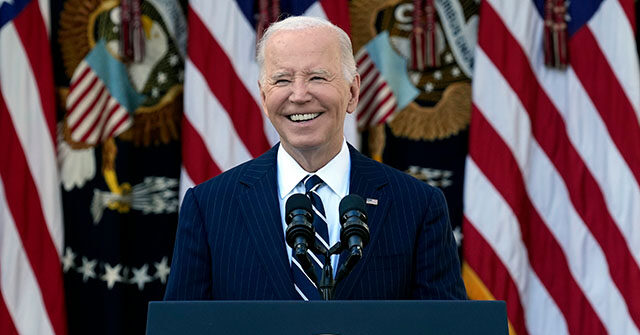On a day marked by a significant political shift, President Joe Biden appeared optimistic as he addressed the nation following President-elect Trump’s decisive victory. With an emphasis on unity, Biden acknowledged the results of the election by stating, “We accept the choice the country made.” He underscored the importance of loving one’s country and neighbor irrespective of political disagreements, urging Americans to see each other as fellow citizens rather than adversaries. This approach aims to foster a more collaborative political atmosphere in the face of stark divisions that have characterized American politics in recent years.
Biden’s speech further emphasized the need for tone moderation in political discourse, particularly in light of Vice President Kamala Harris’s strong denunciations of Trump during the campaign. He called on Americans to “bring down the temperature,” pointing to the inflammatory rhetoric that has accompanied recent elections. His remarks came after intense accusations against Trump, describing him as a threat to democracy and even labeling him a “fascist.” The president’s appeal for civility highlights a desire to mitigate hostility among voters and promote mutual understanding across party lines.
In an effort to affirm his administration’s legitimacy, Biden sought to bolster the integrity of the American electoral system by asserting that it is “honest, fair, and transparent.” He indicated that regardless of the election outcome, trust in the electoral process should remain intact. Notably, Biden pointed out that he congratulated Trump post-election, indicating his commitment to facilitating a smooth transition for the incoming administration—an essential aspect of the American democratic process.
While reflecting on the Biden administration’s legacy, Biden asserted that the work undertaken during his presidency has had meaningful impacts on the American populace, despite the electoral setback represented by Harris’s defeat. He marked the passage of significant legislation as historic achievements. However, this optimistic portrayal contrasts sharply with voters’ responses, as many rejected the current administration’s policies and performance, evidenced by their electoral decisions. Biden referenced historical accomplishments, perhaps in an effort to reaffirm his administration’s contributions to the country.
Voter discontent was palpable, with significant backlash against the Biden-Harris administration stemming from various crises, including economic inflation and national security challenges, like Russia’s invasion of Ukraine and instability in the Middle East. The administration’s handling of migration at the southern border and the chaotic withdrawal from Afghanistan also contributed to widespread dissatisfaction. This discontent was compounded by public perception regarding the administration’s approach to Trump, particularly the unprecedented legal actions that led many to view the Biden administration’s tactics as detrimental to political norms.
Ultimately, Biden may face the legacy of a president whose endorsement and full support of Harris did not materialize into a successful continuation of his policies against Trump’s resurgent political presence. While the president touted accomplishments aimed at demonstrating a successful presidency, the sharp electoral rejection of Harris paints a complex narrative of Biden’s time in office. As Trump emerges victorious in a political landscape reshaped by voters’ sentiments, Biden’s future in political leadership may hinge on the evolving dynamics of his party and the wider electorate’s expectations. Political analysts are left to contemplate the implications of this electoral defeat, considering it a stark indicator of the challenges ahead for the Biden administration and the Democratic Party as a whole.

